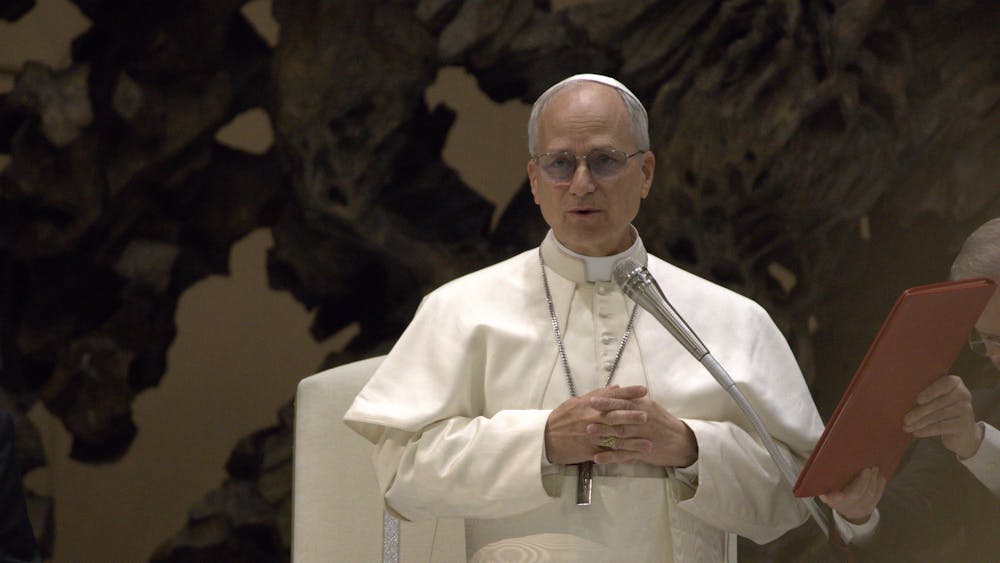The Notre Dame Gender Studies Program hosted a teach-in and discussion featuring a panel of local experts on Post-Roe America on Wednesday afternoon. The panelists discussed the recent Dobbs v. Jackson Women’s Health Organization Supreme Court decision and Indiana’s new abortion law and its effects with an emphasis on marginalized groups.
The event was also sponsored by the Initiative on Race and Resilience, in partnership with the Indiana University South Bend (IUSB) Civil Rights Heritage Center. The panelists included Notre Dame professors Tamara Kay and Christina Wolbrecht, IUSB professor April Lidinsky, post-doctorate fellow Kate McCabe, community activist Charlotte Pfeifer and Darryl Heller, the director of the IUSB Civil Rights Heritage Center.
The discussion revolved around the intersection of faith and support for abortion rights.
Kay said people who support abortion are likely the majority, even at a Catholic school like Notre Dame.
“There are a lot of women of faith who support rights to reproductive freedom and justice,” Kay said. “It’s important for those of us who are willing to speak up to speak out. Otherwise, it appears that there aren’t that many of us when we’re probably the majority.”
Lidinsky agreed, extrapolating Kay’s point to the national level.
“The majority of people in the U.S. and in Indiana support access to the full range of reproductive health care that includes abortion,” Lindinsky said.
Kay said her faith and conscience implore her to think about the repercussions of these policies that affect the people she cares for.
Kay said she believes her conscience is as legitimate as what the Church tells her. She added that her “stance on [the abortion] issue comes from a profound sense of faith and the dignity of women.”
Pfeifer also discussed how her faith drives her beliefs in abortion rights.
“I want you to know that you can be a deep person of faith and you can be pro-choice,” she said.
Several panel members also agreed that anti-abortion policies disproportionately affect minorities and people of color.
Wolbrecht referenced Jim Crow Laws in the first half of the 20th century as an example of laws that constrained Black people’s freedoms. Heller said anti-abortion laws are examples of someone else imposing their will and morality onto others.
“[Patriarchy and white supremacy] have been used to dominate other people, and this has shaped our country and the present,” Heller said.
Pfeifer said the U.S. was built on the backs of underrepresented people, many of whom didn’t have bodily autonomy.
“To me, choice means everything,” she said.
McCabe said authorities can punish women for their behaviors while pregnant, which disproportionately affects marginalized groups.
“Culturally, we have internalized this narrative that some people’s reproduction is problematic,” McCabe said.
She said Indiana’s abortion law makes allows women to be be criminalized on either side of their pregnancy.
“You’d be criminalized for seeking an abortion, but you could also be criminalized for just remaining pregnant,” McCabe said.
She said this is problematic because only focusing on access to abortion ignores conversations about systematic failures that were present when Roe was in effect and continue to affect people post-Roe.
McCabe said focusing just on abortion access can distract from broader conversations about marginalization during the era of Roe v. Wade.
“If we are focusing too narrowly on legal abortion and access to legal abortion, we are missing out on important conversations around all of the ways that people have been marginalized already through their reproduction and reproductive behavior,” McCabe said.
Heller said the reversal of Roe v. Wade is an example of history repeating itself.
“It is one of the ways history expands and contracts and repeats itself,” Heller said. “There is a real attempt to try to narrow the range of rights that we all possess.”
Contact Caroline at ccolli23@nd.edu









